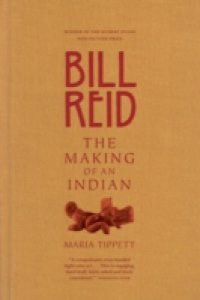Part biography, part art history -- a thoroughly engaging look at one mans life and his phenomenal influence on the world of contemporary art.Bill Reid was at the forefront of the modern-day renaissance of Northwest Coast Native art; but his art, and his life, was not without controversy. Like the raven -- the trickster and principal figure in countless Haida myths -- Bill Reid reinvented himself several times over. Born to a partly Haida mother and a father of German and Scottish descent, his public persona as a Haida Indian seems to have been as much a product of journalists, art patrons, museum curators and others in the non-Native establishment as of Bill Reid himself. It is clear that Reids art arose from the tension that existed between his Native and white artistic perceptions.Award-winning biographer and cultural historian Maria Tippett became intrigued by this enigmatic figure who referred to his own early works as artefakes, yet to this day continues to inspire new generations of Northwest Coast artists, including Robert Davidson and Jim Hart. But she questions whether Reids status as the architect of contemporary Native art is fair and accurate, given that artists such as Mungo Martin had been keeping the tradition alive since the beginning of the twentieth century. Most controversially, she explores how Reid brought a sensibility formed through his white heritage to the reinvention of Native art.By asking difficult questions about Reids life and work, and by analyzing the works of other Native artists since the beginning of the twentieth century, Tippet gives the reader the defining portrait of Bill Reid -- one of Canadas most enigmatic and beloved artists.Bill Reids work can be found in private and public art galleries and museums all over the world. The Museum of Anthropology at the University of British Columbia houses the famous The Raven and The First Men and many smaller masterworks. The Spirit of Haida Gwaii, a monumental bronze sculpture over four metres high, is on display at the Canadian Embassy in Washington, D.C. The British Museum, the Muse de lHomme in Paris and the Canadian Museum of Civilization in Ottawa also hold impressive examples of the work of this extraordinary and imaginative artist.

